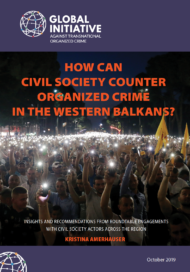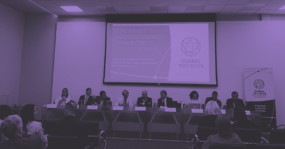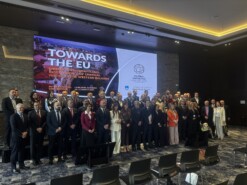Posted on 18 Oct 2019
In July 2018, the Global Initiative Against Transnational Organized Crime (GI-TOC) launched the Civil Society Observatory to Counter Organized Crime in South Eastern Europe. The observatory focuses on the so-called ‘Western Balkan Six’, namely Albania, Bosnia and Herzegovina, Kosovo,* Montenegro, North Macedonia and Serbia. Since the establishment of the observatory, a regional network has been created to support civil society through information exchanges and knowledge-building activities. The network mobilizes individuals and groups (from non-governmental organizations, academia and the media) to work together on tackling organized crime and corruption, and building strong institutions.
On 21 May 2019, the GI-TOC released a regional vulnerability report titled ‘Hotspots of organized crime in the Western Balkans’.
The report identifies places of interest and patterns of organized crime across the region. Investigating the Western Balkan Six, the report uncovers the interconnectedness of illicit activities and organized-criminal groups in the region. It also shows how political elites often provide an umbrella of protection for criminal groups and their activities, while criminal groups, in turn, help the political elites to enrich themselves.2 In this geopolitical context, space for civil society is shrinking.
One of aims of the observatory is to engage civil-society actors in the Western Balkans. This is why the report was presented at the local level during a regional tour in June 2019.
The purpose of the tour was to provide a platform for stakeholders to convene and debate organized crime and corruption. The report was a departure point for discussing the role of civil society in countering organized crime and evaluating possibilities for future engagement.
Roundtable discussions were held in the capital cities of the six countries (Belgrade, Sarajevo, Podgorica, Skopje, Pristina and Tirana), and were co-organized with a local partner. Representatives of local NGOs, members of the media, officials from national prosecutors’ offices and members of the international community attended the events. The discussions brought to the fore the concerns that civil society faces in countering organized crime in the region.
The discussion points and findings of these roundtables are summarized in this document, including key themes that emerged, such as how to define organized-crime in the region, the symbiotic relationship between the state and criminal groups, how the political economy influences the emergence of regional criminal hotspots, and challenges faced by the media.




